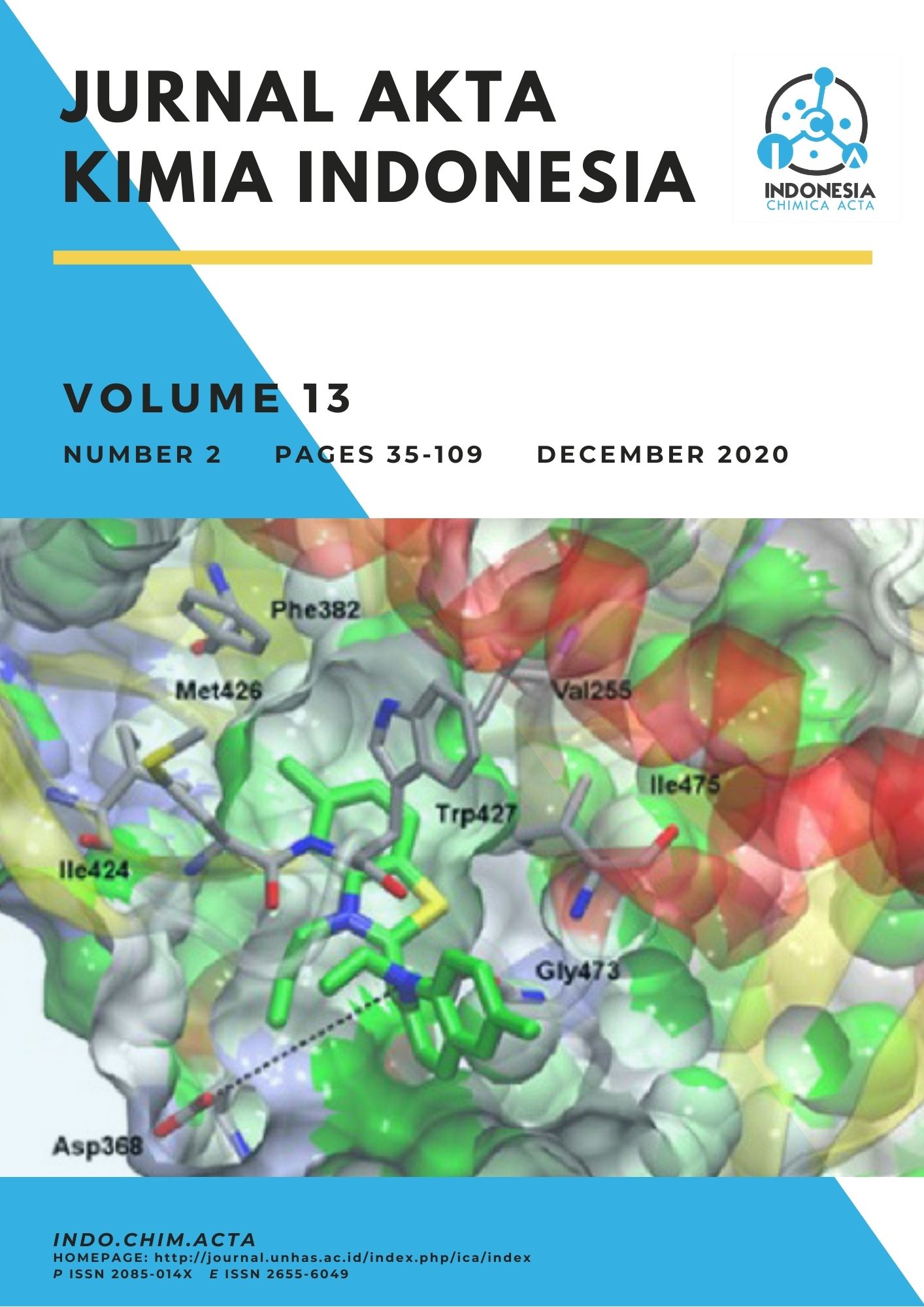Dengue Antiviral Activity of n-Hexane and Acetone Extract of X. testudinaria’s Rhizome from Spermonde Islands, South Sulawesi
Abstract
DHF is a disease that continues to spread in Indonesia and often causes death to sufferers. DHF is caused by the dengue virus which is transmitted by A. aegypty and A. albopictus mosquitoes. Even though there is a vaccine available in Indonesia, its use is still very limited and requires a very large cost, so a solution is needed to find a drug that is effective in inhibiting the dengue virus. The research conducted was related to the assessment of dengue antiviral activity from the sponge extract X. testudinaria originating from the waters of the Spermonde Islands, South Sulawesi. The research stage included the extraction process with the maceration method using alternating n-hexane and acetone solvents, the extract phytochemical test, the extract's toxic activity test against vero cells and the dengue antiviral activity test (DENV2) from the extract. The results of the study obtained evidence that the extract contains steroid and flavonoid compounds. The extract of n-hexane and acetone X. testudinaria had toxic activity against vero cells where the acetone extract with a lower CC50 value of 2.1 μg/mL had stronger toxic properties to cells compared to n-hexane extract with a CC50 value of 21 μg/mL. While the n-hexane extract had very strong inhibitory activity against dengue virus with a low IC50 value of 3.11 μg / mL, and stronger than acetone extract with an IC50 value of 73.1 μg/mL. The SI values of n-hexane and acetone extract respectively showed that the n-hexane extract was more selective with an SI greater than 3, namely 6.75 compared to acetone extract with SI 0.028. This means that the n-hexane extract has more potential to be used as an antiviral drug than the acetone extract
Full text article
Authors
Copyright (c) 2020 Nur Awaliah

This work is licensed under a Creative Commons Attribution-ShareAlike 4.0 International License.
This is an open access journal which means that all contents is freely available without charge to the user or his/her institution. Users are allowed to read, download, copy, distribute, print, search, or link to the full texts of the articles in this journal without asking prior permission from the publisher or the author.
Jurnal Akta Kimia Indonesia (Indonesia Chimica Acta) operates a CC BY-SA 4.0 © license for journal papers. Copyright remains with the author, but Jurnal Akta Kimia Indonesia (Indonesia Chimica Acta) is licensed to publish the paper, and the author agrees to make the article available with the CC BY-SA 4.0 license. Reproduction as another journal article in whole or in part would be plagiarism. Jurnal Akta Kimia Indonesia (Indonesia Chimica Acta) reserves all rights except those granted in this copyright notice.

